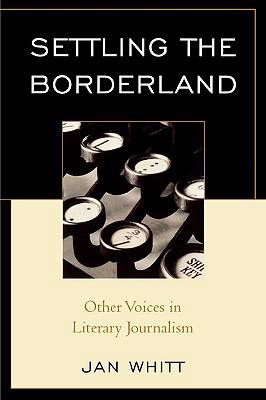
- Afhalen na 1 uur in een winkel met voorraad
- Gratis thuislevering in België vanaf € 30
- Ruim aanbod met 7 miljoen producten
- Afhalen na 1 uur in een winkel met voorraad
- Gratis thuislevering in België vanaf € 30
- Ruim aanbod met 7 miljoen producten
Zoeken
€ 93,45
+ 186 punten
Omschrijving
Settling the Borderland deals with the intimate connection between journalism and literature, both fields in which work by women has been underrepresented. This book has a twin focus: the work of journalists who became some of the greatest novelists, poets, and short-story writers of the nineteenth and twentieth centuries in America, several of whom are men, and contemporary journalists who best exemplify the effective use of literary techniques in news coverage. Although five women are emphasized here (Katherine Anne Porter, Eudora Welty, Joan Didion, Sara Davidson, and Susan Orlean), three men whose work was profoundly influenced by journalism also are included. Edgar Allan Poe, Walt Whitman, and John Steinbeck are well known as writers of poetry, short stories, and novels, but they, too, are among the 'other voices' rarely included in studies of literary journalism. In Settling the Borderland, Jan Whitt presents a thorough analysis of the increasingly indistinct lines between truth and fiction and between fact and creative narrative in contemporary media.
Specificaties
Betrokkenen
- Auteur(s):
- Uitgeverij:
Inhoud
- Aantal bladzijden:
- 164
- Taal:
- Engels
Eigenschappen
- Productcode (EAN):
- 9780761840930
- Verschijningsdatum:
- 5/09/2008
- Uitvoering:
- Paperback
- Formaat:
- Trade paperback (VS)
- Afmetingen:
- 152 mm x 224 mm
- Gewicht:
- 294 g

Alleen bij Standaard Boekhandel
+ 186 punten op je klantenkaart van Standaard Boekhandel
Beoordelingen
We publiceren alleen reviews die voldoen aan de voorwaarden voor reviews. Bekijk onze voorwaarden voor reviews.











